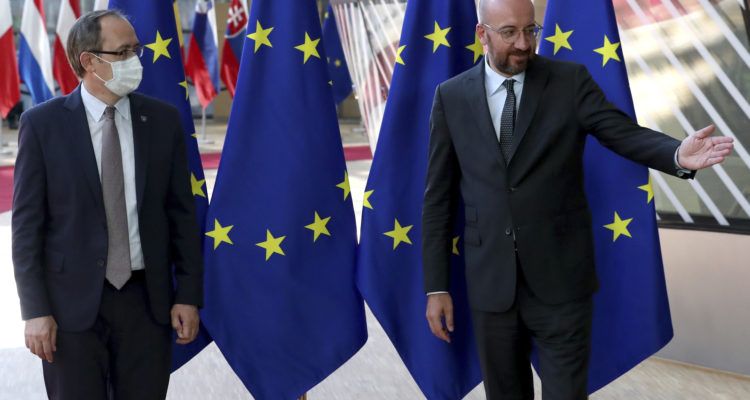“Any steps that could call into question the EU’s common position on Jerusalem are a matter of serious concern and regret,” Stano said.
By David Isaac, World Israel News
EU External Affairs Spokesman Peter Stano criticized the announcement of Kosovo and Serbia that they would move their embassies to Jerusalem, on Monday at a press conference.
“Any steps that could call into question the EU’s common position on Jerusalem are a matter of serious concern and regret,” Stano said.
President Donald Trump announced Friday that Serbia and Kosovo have agreed to normalize economic ties as part of U.S.-brokered talks that include Belgrade moving its Israeli embassy to Jerusalem, and mutual recognition between Israel and Kosovo.
Prime Minister Benjamin Netanyahu praised the move, noting especially the meaning of Kosovo’s decision. Kosovo will be the first majority-Muslim country to open an embassy in Jerusalem,” Netanyahu said.
Stano made what appeared to be a veiled threat, however, suggesting that an embassy move by the two countries might affect their acceptance into the EU.
“[S]ince Kosovo and Serbia identified EU accession or EU integration as their strategic priority, the EU expects both to act in line with this commitment, so the European perspective is not undermined,” Stano said.
Serbia officially applied for EU membership in 2009. It’s expected to fully join by 2026. Kosovo, which declared independence from Serbia in 2008, is further back in the process, recognized only in 2018 as a candidate for accession to the EU.
The EU views embassy moves to Jerusalem as a contradiction of its policy. The EU’s official position is that Jerusalem must be split in two and become the capital of both Israel and Palestine.
“A way must be found through negotiations for Jerusalem to be capital of both states, Israel and Palestine,” Stano said.
The EU’s official policy regarding the Arab-Israel conflict is a two-state solution with a Palestinian state established along the 1967 lines.
The position appears to ignore facts on the ground as over 400,000 Jews currently live in Judea and Samaria, won by Israel in the Six Day War. It also flies in the face of Israel’s position, which is that the Jerusalem will forever remain the united capital of the Jewish State.





